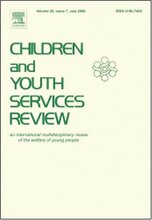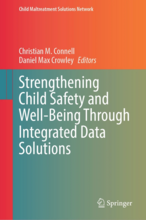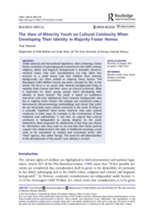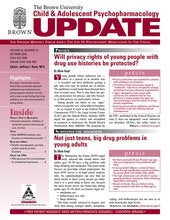Displaying 71 - 80 of 2221
Dr Rhiannon Evans, Reader in DECIPHer, discusses a systematic review taken of international evidence to understand what programmes work for improving the mental health of care-experienced children & young people, how they work, and what m
This study aimed to explore variability in adaptive functioning in social competence, mental health, and school adjustment in a sample of children in foster care in Spain, and to assess which factors differentiated resilient children (i.e., showing adaptive functioning across domains) from those who were not resilient.
From 2021 to 2023, the United States Department of Health and Human Services (HHS) has taken administrative actions to prioritize the implementation of Family First prevention services. These actions minimize traumatic deployments of CPS, reduce the use of family separations, and bolster support for families providing kinship care. In this brief, the authors highlight where progress has been made—and where the Administration for Children and Families (ACF) could still take additional steps in 2024.
This U.S.-based study analyzes data from a statewide kinship caregiver survey which collected demographic data, challenges, and needs.
This chapter summarizes results of a study of high service use, or “superutilization,” among children in foster care in the U.S. The study linked administrative data from child welfare, Medicaid, and other services for two sites.
This study examines how multiple factors from foster caregivers’ surrounding environments impact satisfaction and retention among 462 foster caregivers in the United States.
In this article, the focus is on youth with minority backgrounds living in majority foster homes and their views on cultural continuity. What is important for these young people when developing their identity in foster homes? The study is based on qualitative interviews with nine adolescents from minority
backgrounds who live in majority foster homes, which are homes in which one or both foster parents have ethnic Norwegian backgrounds. The analysis was conducted using a hermeneutic phenomenology methodology and shows that youth do not necessarily want cultural continuity in the sense of living in a culturally “matched” foster home.
This paper intends to capture the landscape of alternative care and its evolution in India, drawing from the review of the legal and policy framework, existing literature, and detailed discussions with Civil Society Organisations(CSOs) and State functionaries.
This longitudinal study aims at investigating the attachment disorder symptoms during the first year of placement in foster care. The participants
were recruited through German social services departments around Dortmund, the Ruhr valley, and the Metropolitan region of Nuremberg.







